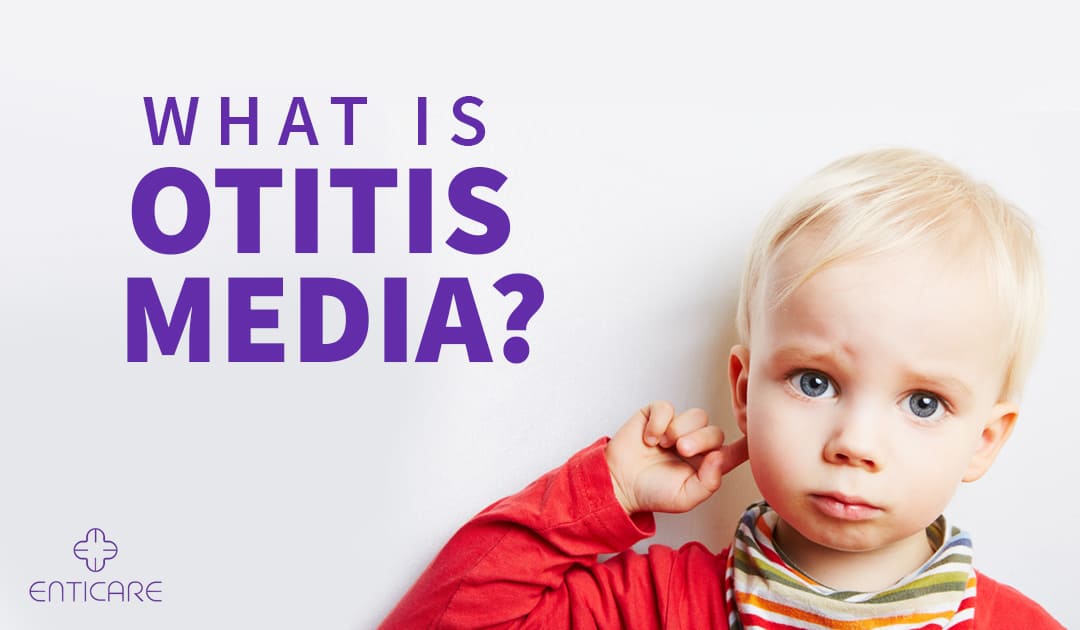Otitis media is a common ear infection that occurs when the middle ear becomes inflamed and filled with fluid. This condition can be painful and uncomfortable, and it can affect people of all ages, although it is most common in children. In this blog post, we will explore the causes, symptoms, and treatment options for otitis media.
Causes of Otitis Media:
Otitis media is usually caused by a bacterial or viral infection that affects the middle ear. These infections can occur when fluid builds up in the middle ear and becomes infected. Some of the factors that can increase the risk of developing otitis media include:
- Age: More prevalent in young children, as their immune systems are still developing, and their Eustachian tubes are shorter, facilitating the entry of bacteria and viruses to the middle ear.
- Family History: A family history of ear infections may elevate the risk of developing this condition.
- Allergies: Allergies can lead to inflammation in the Eustachian tubes, hindering fluid drainage from the middle ear.
Symptoms:
The symptoms of otitis media can vary depending on the severity of the infection and the age of the person affected. Some of the most common symptoms of otitis media include:
- Ear Pain: Intense discomfort, particularly heightened at night, may signify the discussed condition.
- Difficulty Hearing: Accumulated fluid in the ear, a common outcome, can lead to hearing challenges.
- Fever: Common in children, a fever can be linked to the condition under consideration.
- Ear Drainage: Pus or fluid discharge from the ear may occur in cases associated with the discussed condition.
- Headache: Headaches may be a symptom, especially in severe infections often linked to the condition.
- Nausea and Vomiting: Some individuals with the discussed condition may experience these symptoms.
- Irritability: Children, especially, may exhibit fussiness due to pain associated with the condition.
- Loss of Balance: Disruption in the ear’s balance system can result in dizziness or loss of balance.
Treatment Options
The treatment options for otitis media depend on the severity of the infection and the age of the person affected. Some of the most common treatment options include:
- Antibiotics: Essential for treating bacterial infections, completing the full prescribed course ensures thorough infection treatment.
- Pain Relief: Over-the-counter options like acetaminophen or ibuprofen effectively alleviate otitis media-related pain.
- Ear Drops: For draining ears, prescribed drops with antibiotics and anti-inflammatory agents reduce inflammation and aid healing.
- Surgery: Reserved for rare instances, surgery addresses severe or recurrent otitis media cases.
Preventing Otitis Media
There are several steps that can be taken to reduce the risk of developing otitis media. Some of the most effective prevention strategies include:
- Getting Vaccinated: Essential vaccines, like the pneumococcal and flu vaccines, aid in preventing infections linked to the discussed condition.
- Washing Hands: Frequent handwashing is a simple yet effective measure to curb the spread of germs associated with the discussed condition.
- Avoiding Smoking: Eliminating exposure to secondhand smoke is crucial to minimize the risk linked to the discussed condition.
- Breastfeeding: Aiding in immune system development, breastfeeding is beneficial for reducing the risk linked to the discussed condition.
Conclusion
Otitis media is a common ear infection that can cause a variety of symptoms, including ear pain, fever, and difficulty hearing. The causes of otitis media are often related to infections that spread from the upper respiratory tract, and treatment options may include antibiotics, pain relief, and ear drops. By taking steps to prevent otitis media, such as getting vaccinations and regular handwashing, it is possible to reduce the risk of developing this condition and promote better ear health. Contact our team at Enticare today and let us help you find the best course of treatment. Call us at 480-214-9000.

